Beyond the blueprint: Ajay’s journey from obligation to ownership
What happens when a young man, planning to join the Air Forces, finds himself advocating for land rights for the marginalized communities of Madhya Pradesh as part of Pravah’s SMILE Internship Program? Through this experience Ajay challenged his assumptions, ignited his passion for storytelling, and reshaped his understanding of purpose and success. This article explores how immersive, reflective, and diverse learning environments can empower young people to question inherited paths and design lives rooted in empathy, curiosity and meaning. Ajay’s story illustrates that real preparation for life goes beyond skills. It begins with self-discovery.
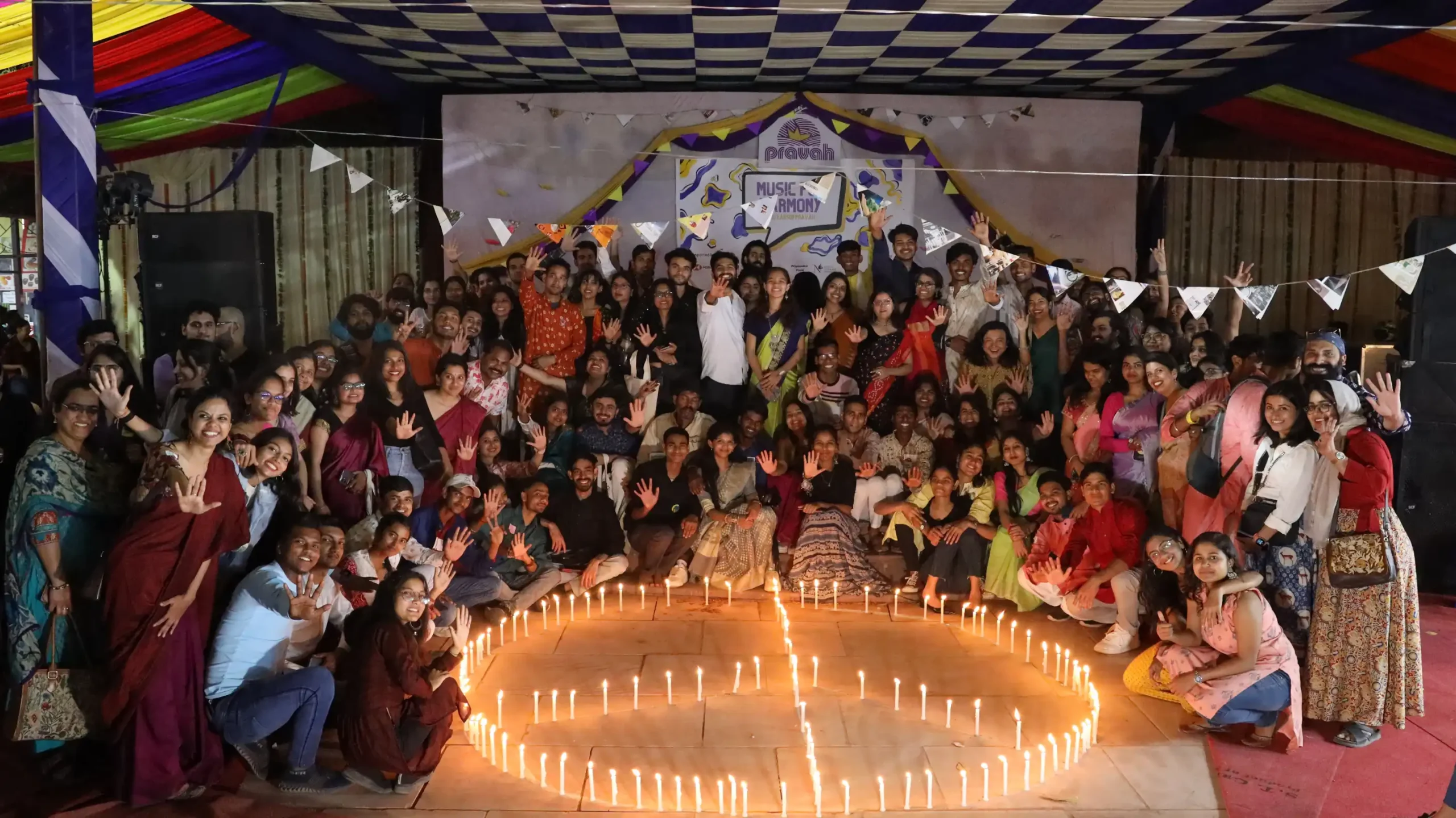
In many parts of India, growing up means growing into expectations. Your future is not a mystery to be explored but a plan to be followed. Often, it is decided by your parents, your community, your financial situation and most of all, by fear. Fear of failing. Of wasting time. Of being left behind.
Ajay grew up with that fear. He knew exactly what his life would look like. Finish graduation. Join the Air Force like his father and become a ‘successful man’. Until a mandatory college volunteering requirement landed him in Pravah’s SMILE Internship Program. The program is aimed for young people to undertake the journey ‘from self to society’ and in the process, engage deeply with social issues, get exposure and act for social change.
The discomfort of a new lens
Ajay was placed in a small village in Madhya Pradesh to work with an organization that advocates for land rights. He thought he was going there to help people. Instead, he became a witness to their resilience.
For the first time, he saw the strength, strategy and solidarity of communities he had previously dismissed as ‘lazy’ or ‘helpless’. He felt ashamed, and then, curious. How many other stories had he misunderstood?
This was the first crack in the structure he had inherited.
SMILE does not begin with answers. It begins with immersion and questioning. By placing young people in grassroots realities, it invites them to confront what they know and what they don’t. It’s a kind of learning that is rooted in experience that transforms discomfort into discovery.
Not just a program, but a pause
In a world where time is money, and growth is measured by placements, SMILE offers something different, a pause.
Ajay didn’t just travel physically. He travelled inward. For the first time, he had space to reflect on his values, his aspirations and his inherited assumptions. He met peers from across the country, listened to their journeys and found parts of himself mirrored in their courage and confusion.
This wasn’t a classroom, it was a circle—non-judgmental, honest and slow. And in that slowness, something remarkable happened. He began to speak his truth. He told the group that he didn’t want to join the Air Force. That he was drawn to storytelling. That he wanted to become a journalist.
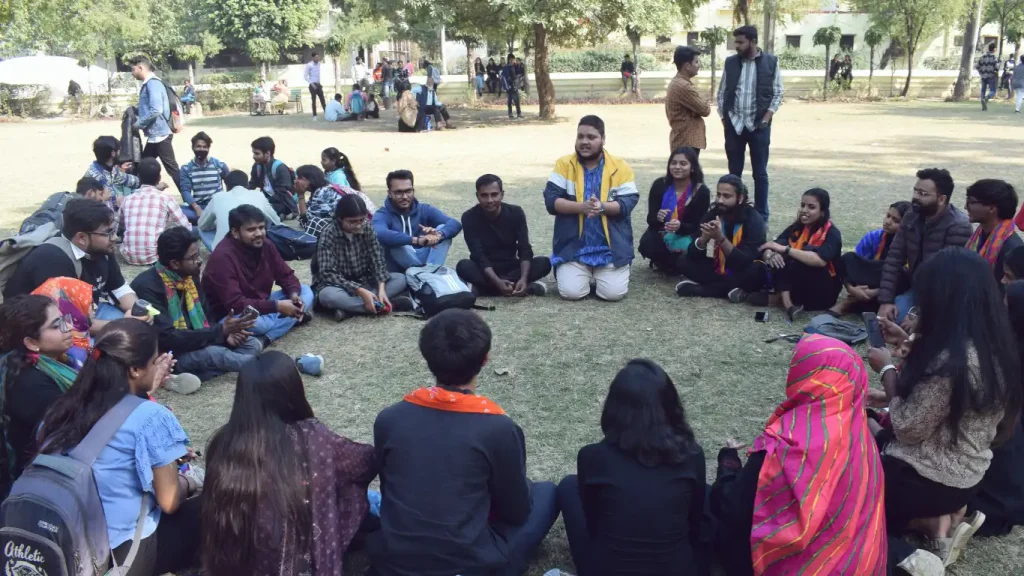
Photo credit: Pravah
But passion is a privilege… isn’t it?
His friends understood. His parents didn’t.
Ajay’s father couldn’t see how journalism could bring the family security or status. And who could blame him? In a world in which following one’s passion often feels like a luxury for the privileged, safety feels like the only sane choice.
And yet, in today’s economy, there is a scarcity of secure jobs. There is a growing demand for adaptability. Non-traditional paths are no longer a risk. They are the reality.
The SMILE program doesn’t just encourage passion. It helps young people develop a mindset for lifelong learning, curiosity, courage and the capacity to keep evolving.
It’s not about ‘doing what you love’ in a naive way. It’s about finding meaning. And then building skill, perspective and networks around it so that passion becomes not just a feeling but a foundation.
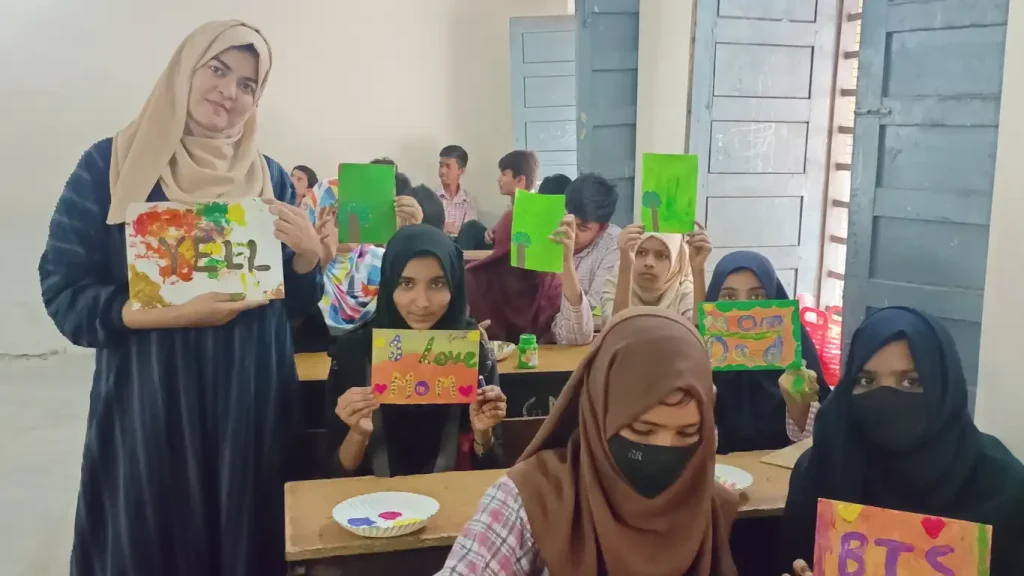
Photo credit: Pravah
From diversity to empathy
One of SMILE’s most transformative elements is its intentional diversity. Young people from rural and urban areas, different castes, classes, religions and genders come together in the same cohort. Their lives are vastly different, but their questions are often the same.
This shared space creates opportunities not just for dialog, but for deep listening. When you encounter lived experiences that challenge your assumptions, empathy begins to grow not as an abstract value but as a grounded practice. Exposure to difference becomes a way to build bridges. It pushes young people to reflect on their privileges, confront their biases and broaden their worldview.
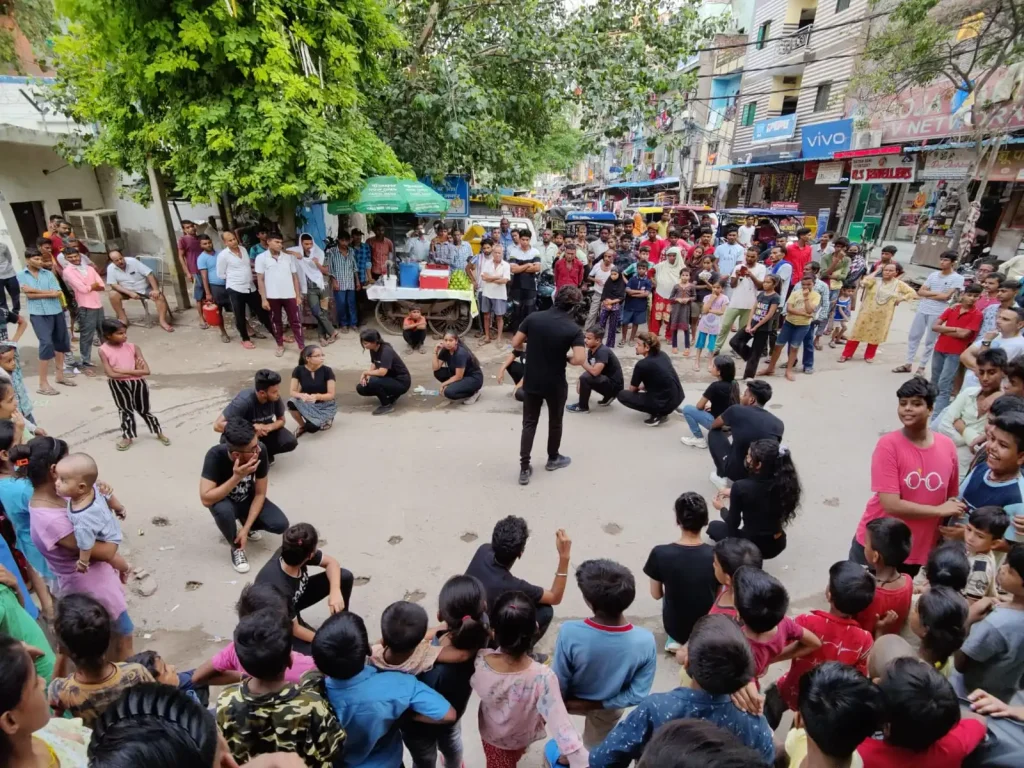
Photo credit: Pravah
No final destination, just deeper direction
Ajay’s story doesn’t end with a job offer or an award. It ends with something more powerful—awareness. He’s still negotiating with his family—still navigating uncertainty. But he now knows that life isn’t a straight line. It’s a journey of choices and the courage to own them.
That’s what SMILE aims to cultivate. We are often asked: “What skill did this young person gain?” “How does this program make the participants employable?”
But maybe the real question is: “are they becoming self-aware, reflective, resilient human beings who can shape their lives and the world intentionally?”
Ajay may not have all the answers. But he’s asking better questions. And sometimes, that’s where real education begins.
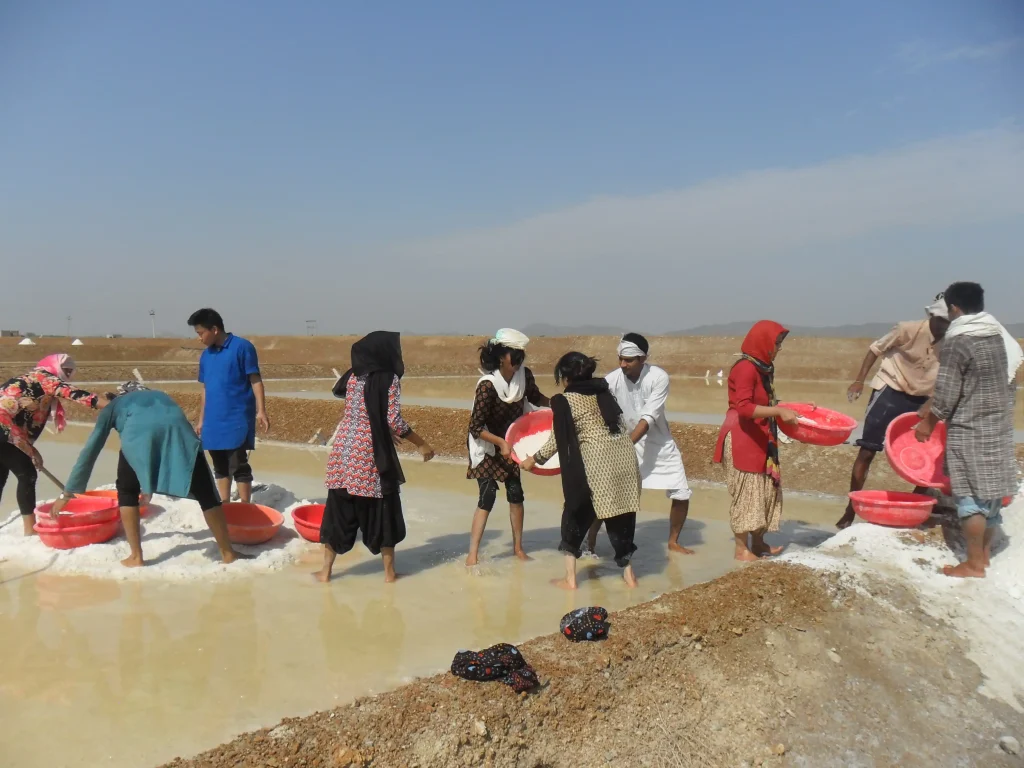
Photo credit: Pravah
What we owe to young people
Our role isn’t to hand young people a script. Our role is to give them the space, support and courage to write their own. Pravah was founded to address this critical gap in the traditional education system. While preparing youth for careers, we often fail to equip them with the essential skills needed to navigate life’s complexities. To bridge this gap, Pravah is dedicated to nurturing lifelong learners by imparting these crucial skills during the formative years of adolescence and young adulthood through programs like SMILE.
In today’s world of noise and pressure, what they need most is not a checklist of skills but a place to pause, reflect and discover who they are. SMILE offers that place. It nurtures not just doers but thoughtful, purposeful human beings. It shows young people that they can question, dream and choose a life rooted in meaning. It creates a space for transformation. That kind of transformation doesn’t just change a career.
It changes a life.
It changes a community.
It changes the world.
So, let’s stop asking young people what they want to do. Let’s start asking them, “What kind of life do you want to live?”
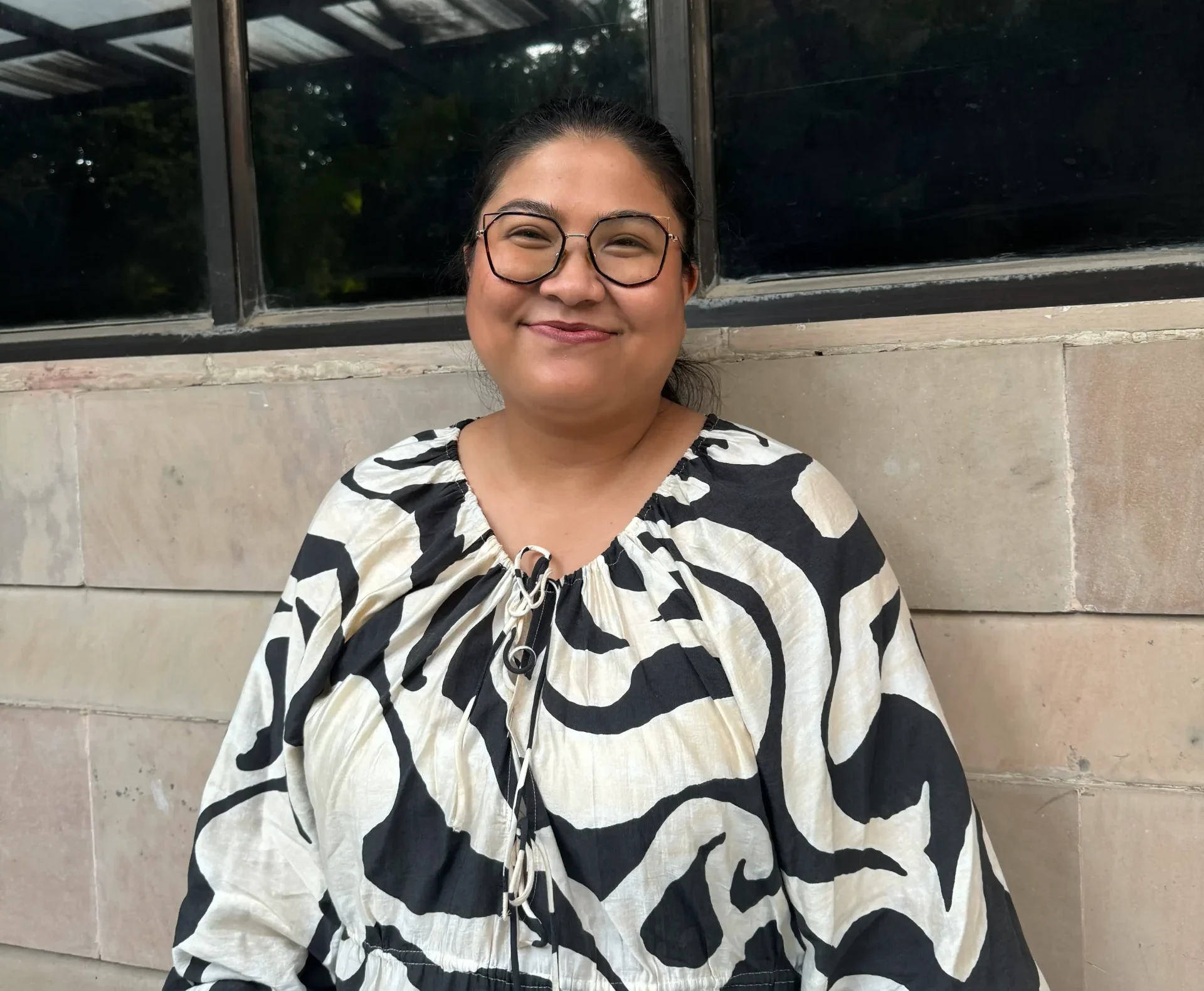
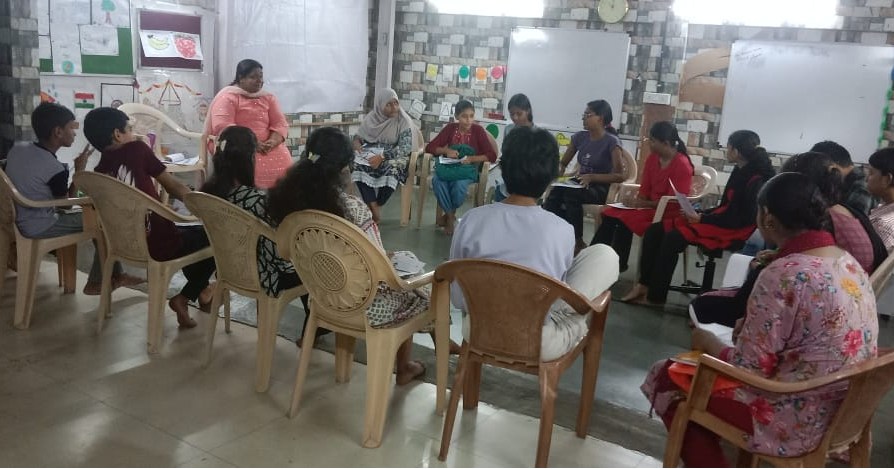

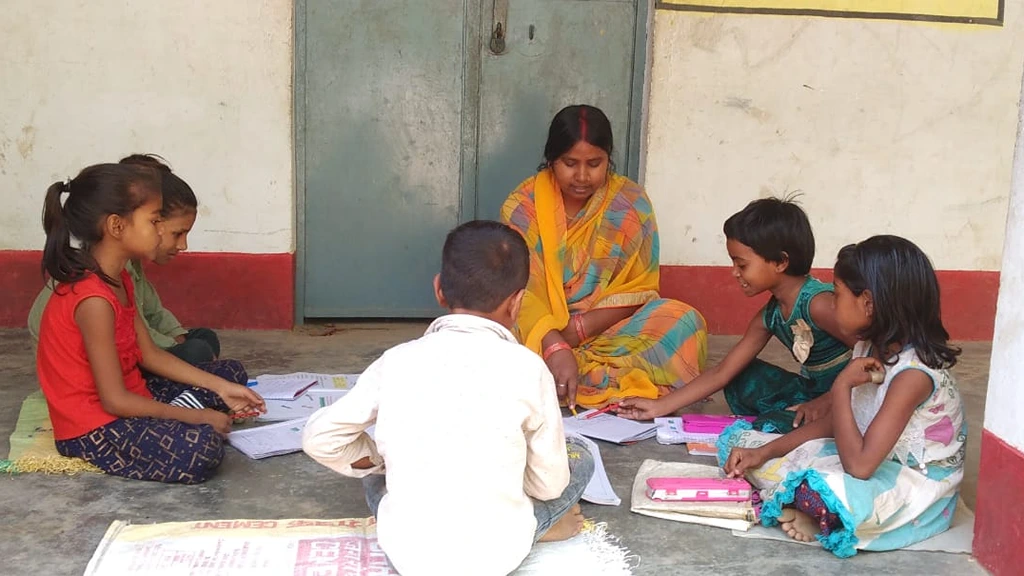
No approved comments yet. Be the first to comment!